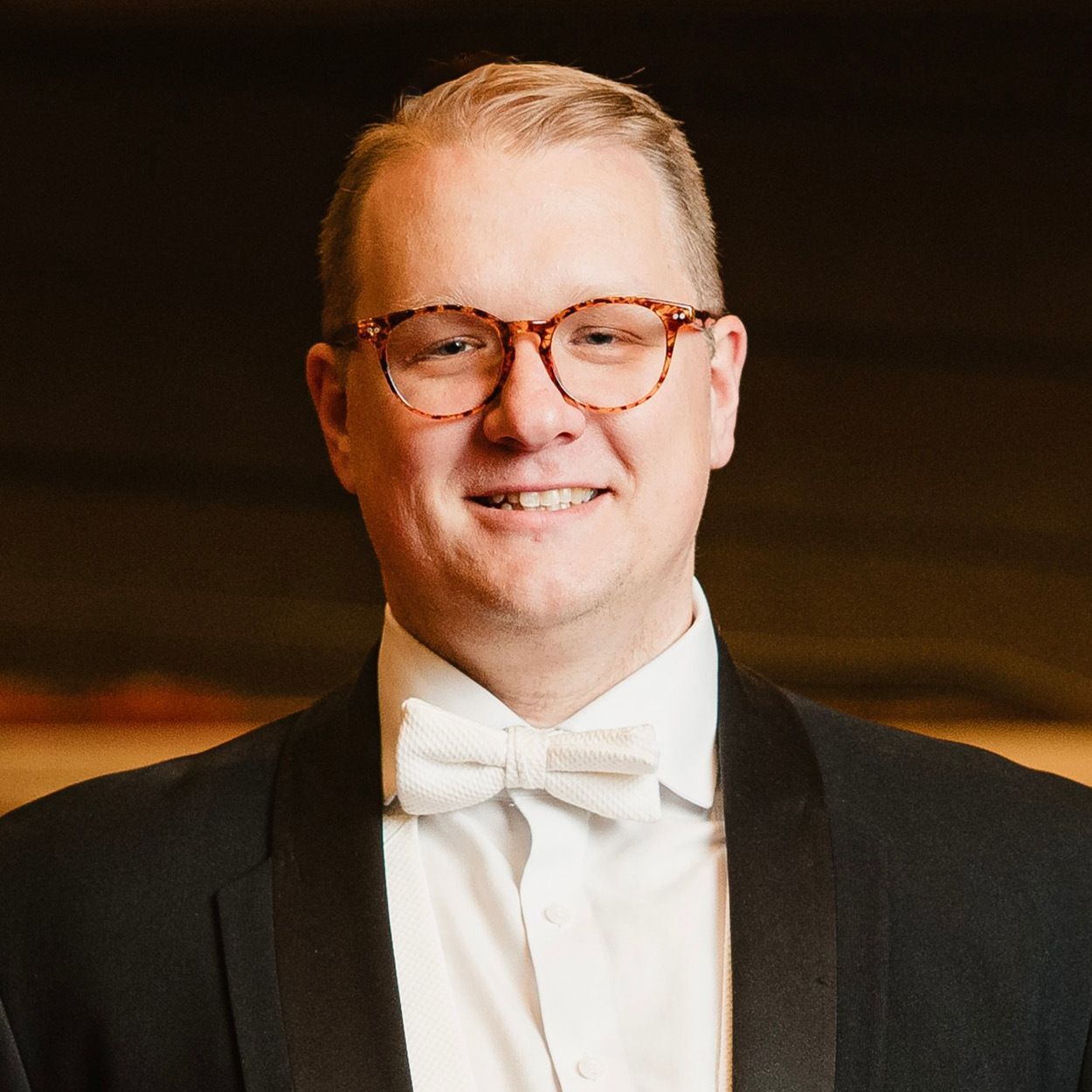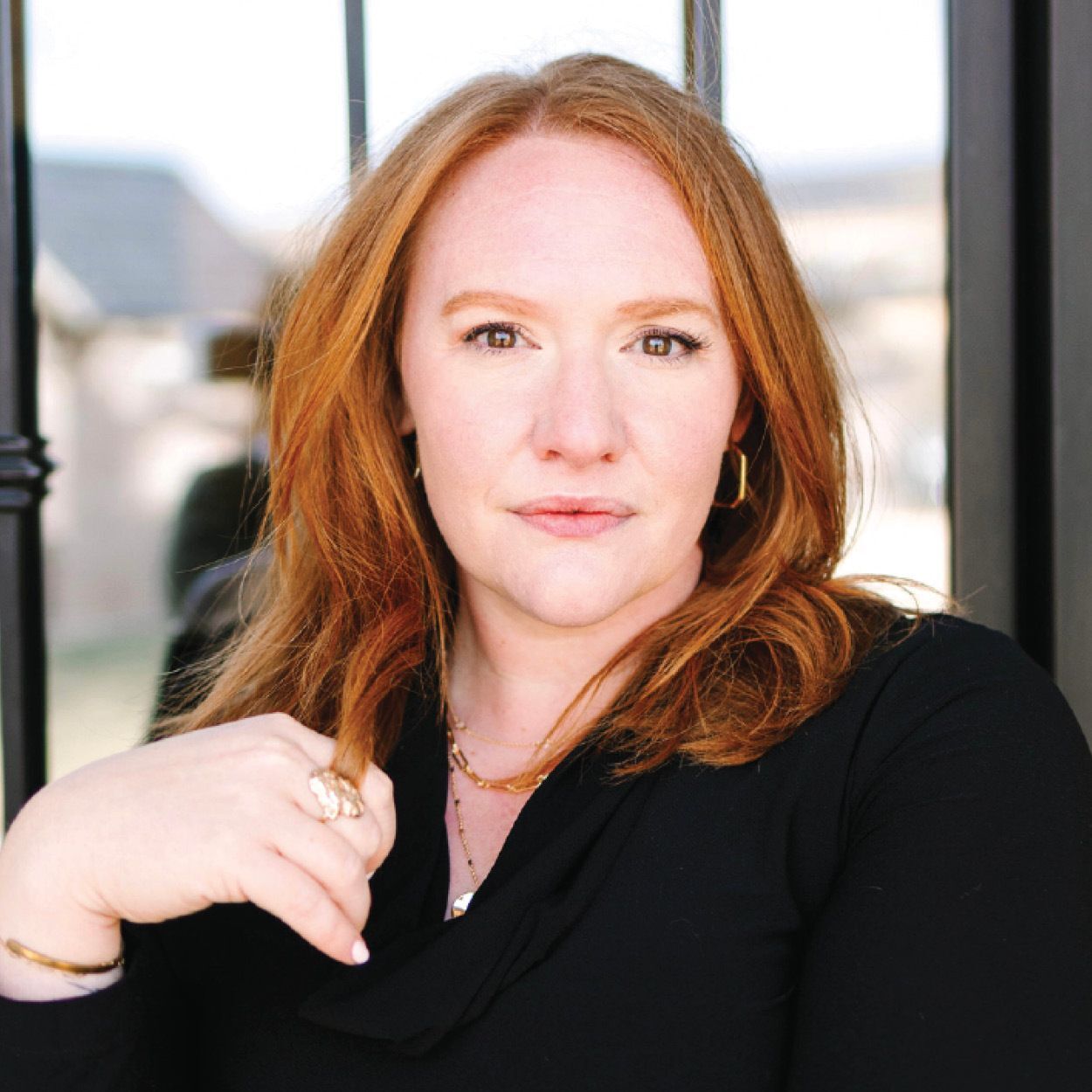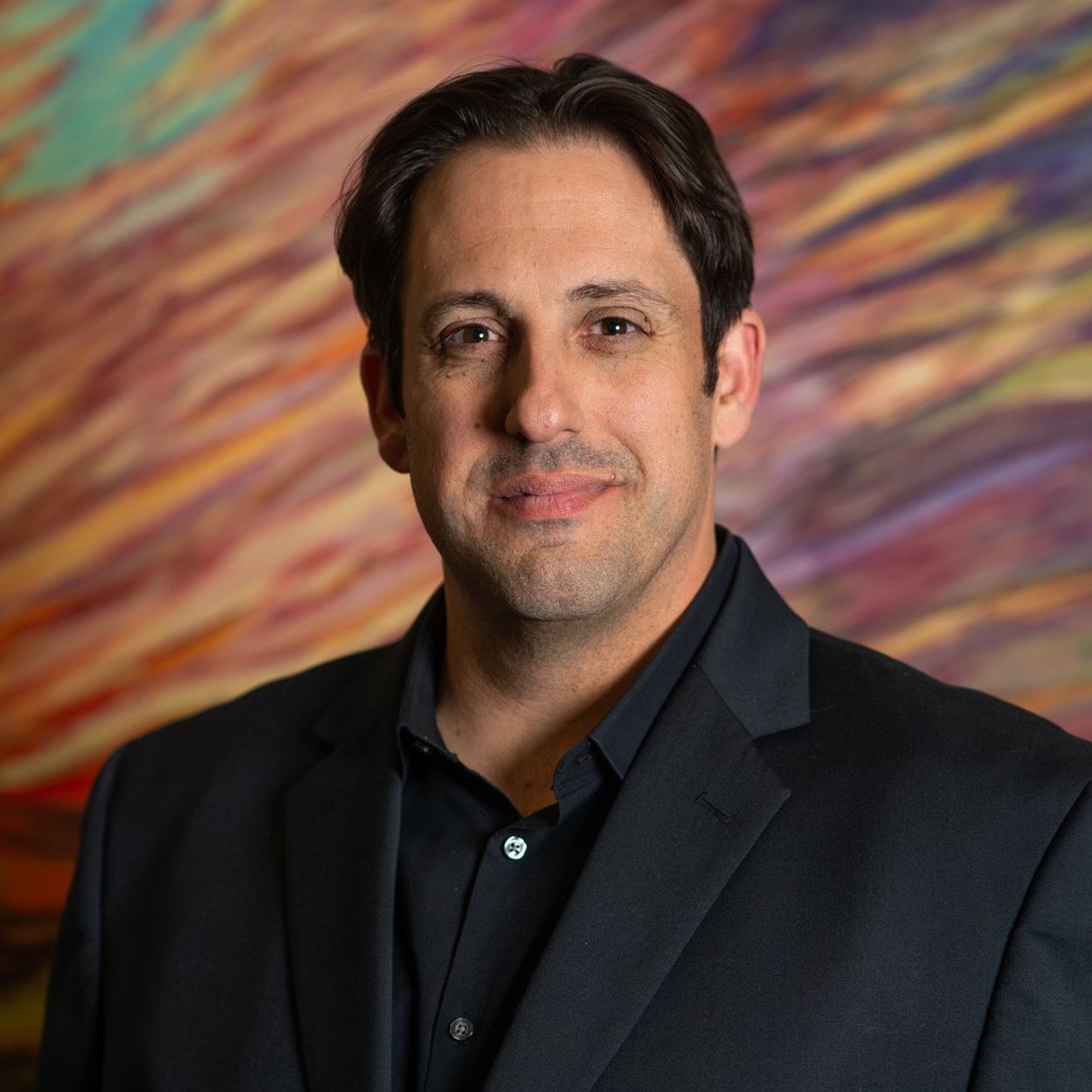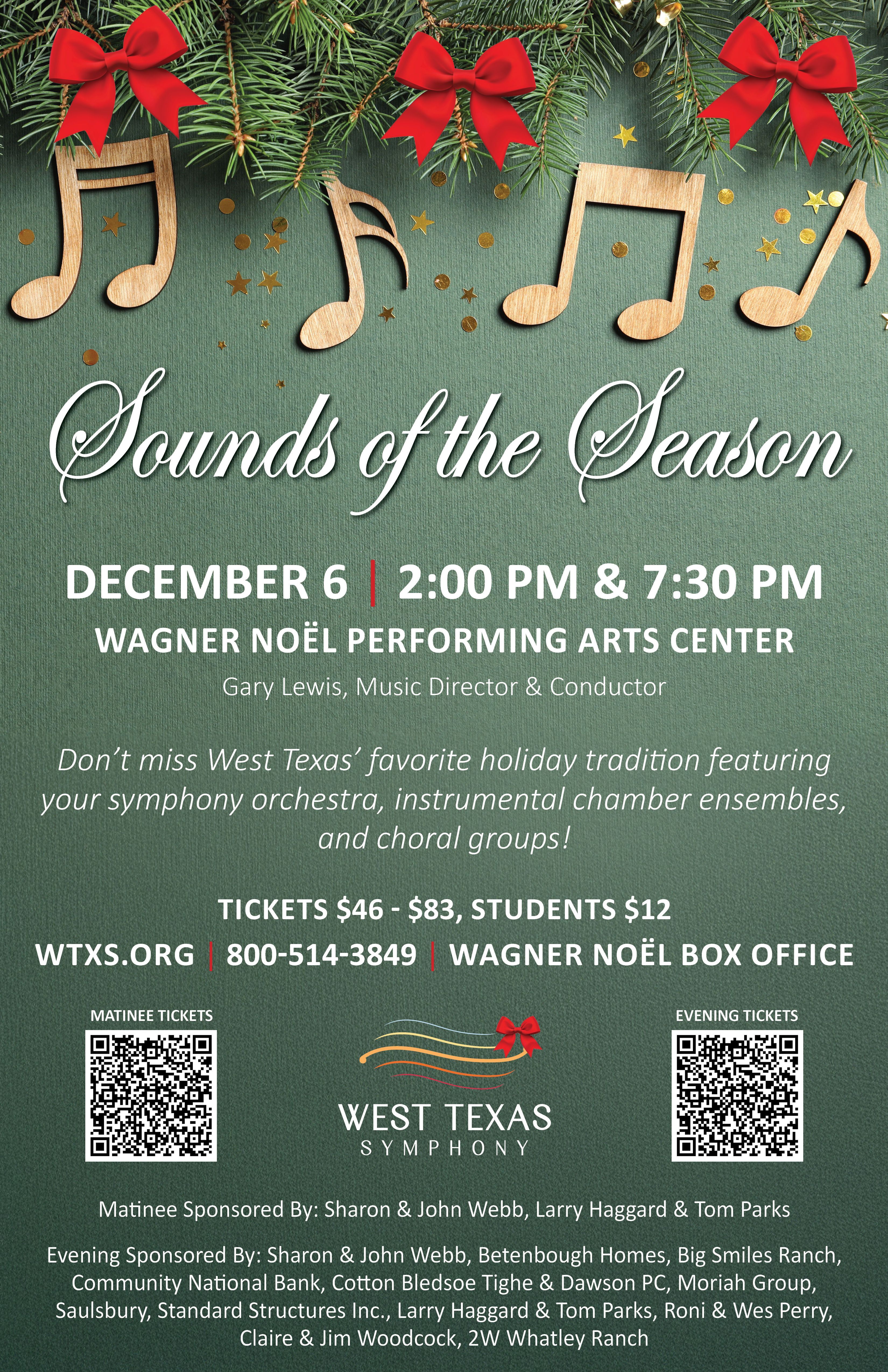SELAH PSALMS & SONGS
Chamber Chorale with Chamber Orchestra
Friday, November 21, 2025 | 7:30PM
St. Ann's Catholic Church Midland
Presented By West Texas Symphony Chamber Chorale, University of Texas Permian Basin Choirs, Featuring West Texas Symphony Orchestra Musicians
Dr. Brad Light, Chorale Director & Conductor
Anthony J. Maglione, Attending Composer
Alice Anne Light, Mezzo-Soprano
Luke Williams, Baritone
Chichester Psalms
Leonard Bernstein (1918 – 1990)
Aidan Foley, soprano
Alice Beckstrom, soprano
Cindy Benbow, alto
M.C. Darby, tenor
Jonathan Rhoades, baritone
Psalm 108:2; Psalm 100
Psalm 23; Psalm 2:1-4
Psalm 131; 133:1
Leonard Bernstein (1918–1990) was one of the most dynamic and versatile American musicians of the 20th century, celebrated as a conductor, composer, pianist, educator, and cultural ambassador. Best known for his Broadway masterpiece West Side Story, Bernstein bridged the worlds of classical music, popular song, and jazz with a bold, unmistakable voice. He served as music director of the New York Philharmonic, becoming the first American-born conductor to lead a major American orchestra, and he inspired millions through his “Young People’s Concerts” televised nationwide. Bernstein’s career reflected his deep commitment to making music accessible, relevant, and expressive of the human spirit.
Chichester Psalms (1965), commissioned for the Cathedral of Chichester in England, is a landmark of 20th-century choral-orchestra works. Written in Hebrew, the piece weaves together texts from Psalms 2, 23, 100, 108, 131, and 133 into three movements that blend lyrical beauty, rhythmic vitality, and a distinctively American sound. While compositionally sophisticated and complex, Bernstein described the work as “popular in feeling,” combining elements of Broadway-style melodies, jazz-inflected harmonies, and lively dance rhythms with the sacred power of the psalm texts. The result is a striking fusion of tradition and modernity.
The Chichester Psalms showcase Bernstein’s gift for direct, emotional communication. The opening movement begins with a bold and energetic call from the full ensemble, urging us to “awake” our instruments of praise and “rouse the dawn.” This is followed by a boisterous, dance-like section in an unusual 7/4 meter, full of rhythmic vitality.
The tender second movement juxtaposes two contrasting ideas. The first is a serene setting of Psalm 23, sung by a boy soloist and echoed by the trebles of the choir. Against this, the lower voices introduce a strikingly angular theme that interrupts the pastoral calm, creating a poignant tension.
The final movement closes the work in hushed serenity with the words, “Behold, how good and how pleasant it is, for brethren to dwell together in unity.” In this way, Bernstein’s music not only dazzles with its artistry but also invites us to reflect on the universal longing for peace and harmony that transcends language, culture, and time.
Brad Light, 2025
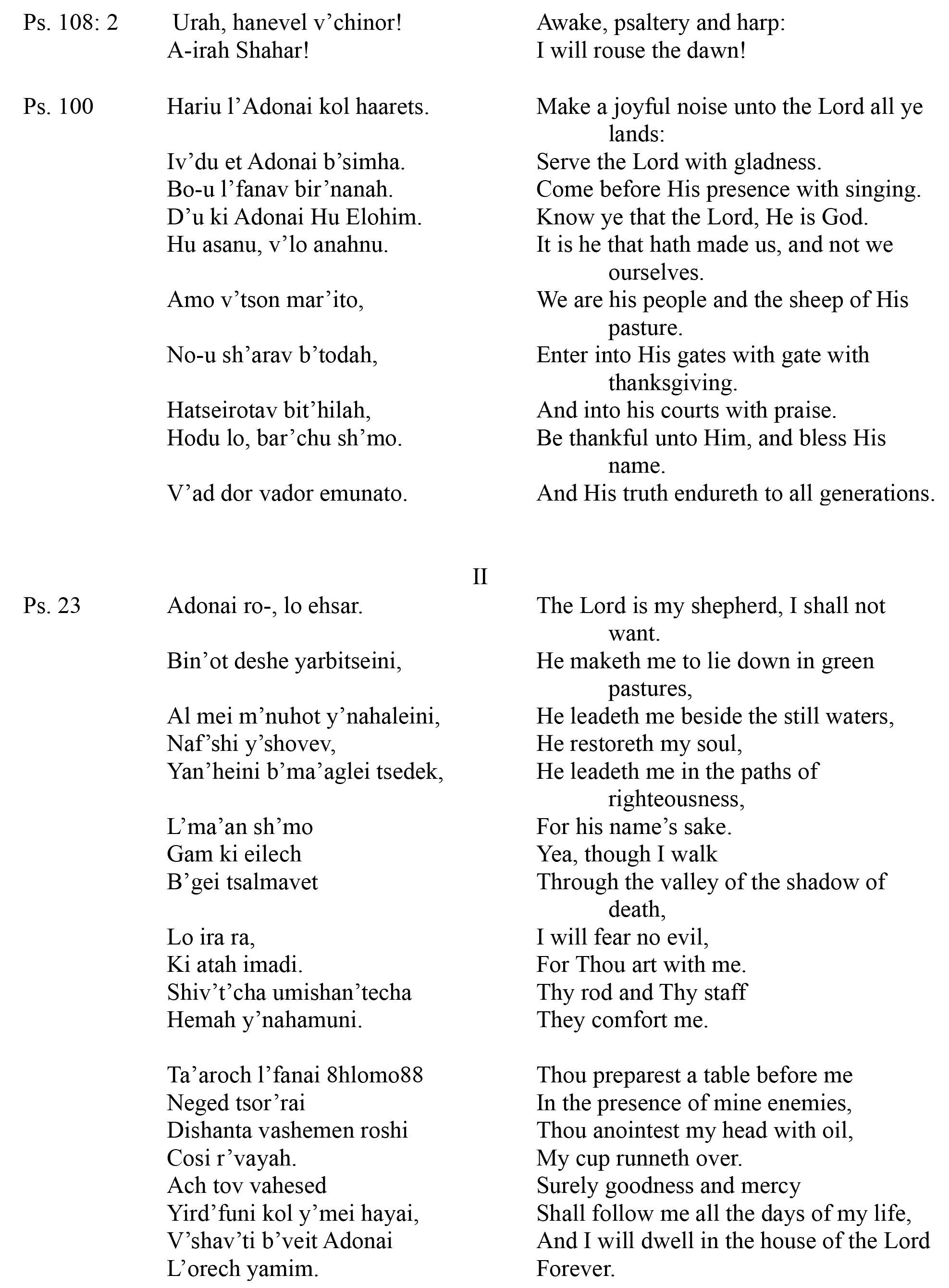
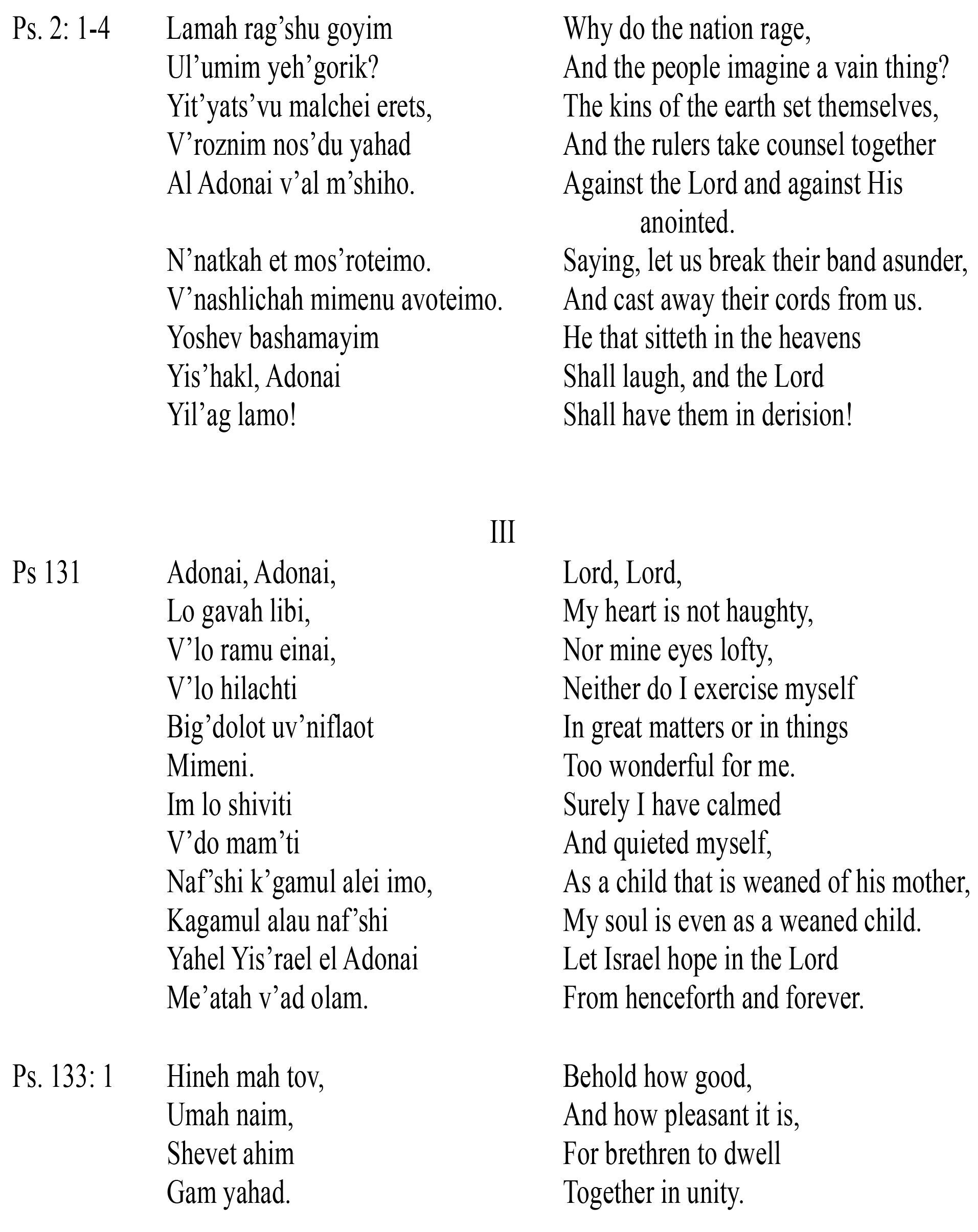
The Wedding of Solomon*
Anthony J. Maglione
Alice Anne Light, mezzo-soprano
Corlos Hinojos, baritone
Wilfred Luke Williams, bass-baritone
Aspen Listner, mezzo-soprano
Scene 1: Preparation of the Bride
Scene 2: The Entrance of Solomon
Scene 3: Solomon Admires His Bride’s Beauty
Scene 4: The Celebration
* Texas Premier, West Texas Symphony Chamber Chorale, November 21, 2025
The Wedding of Solomon was commissioned by the American Guild of Organists and premiered at the 2018 American Guild of Organists National Convention.
Having started research for this project shortly after my own wedding in 2016, I kept coming back to the thoughts and emotions fresh in my mind: the anticipation of the sacred ceremony, the excitement of new beginnings, and the joy of a celebration with friends and family. I was moved by the sensual, yet spiritual poetry of Song of Songs, so I weaved together texts from this scripture to create a narrative depicting a wedding in four scenes.
The creation of this cantata required me to think outside of my traditional western compositional knowledge which led me to applying for, and winning, a fully funded year-long sabbatical from William Jewell College, where I was teaching at the time. During my sabbatical, I traveled and researched with prominent Jewish music scholars at the University of California Los Angeles and the University of California Santa Barbara and to New York City to seek further study in orchestration techniques. Meeting with these scholars, I learned about Jewish cantillation from both the Ashkenazic and Sephardic traditions and traditions of improvisation in Middle Eastern music; all of which can be heard influencing my compositional choices throughout the work.
“Scene 1 – The Preparation of the Bride” is meant to feel introductory as if the curtain is being pulled back and the audience is brought into the room as a bride, sung by a mezzo soprano, prepares for an ancient wedding. The tune, based on Hebrew cantillation, helps to explore both her eagerness for her new life and her anxiety surrounding her feeling of self worth. She is accompanied by a chorus of women helping her to don her wedding garb. As with any major life event, doubt can seep in. So, following the dressing by her helpers, the mezzo soprano lets out an impassioned plea, “Do not look upon me…,” as she questions her own worthiness.
“Scene 2 – The Entrance of Solomon” features shofar calls, supplied by off-stage horns, which signal the arrival of Solomon and his enormous entourage as they enter with a royal flourish. The use of the “Tekiah,” a long blast followed by one or two notes to signifies praise or a call to worship, and the “Teruah,” nine staccato blasts which indicates an acclamation. This call back to the shofar was intended as an homage to Elgar’s The Apostles and the famous whistled figure which begins Bernstein’s Westside Story. Following the horn calls, the baritone heralds, “Who is this that cometh out of the wilderness like pillars of smoke?” Then, we are greeted with the entourage with bold, triumphant fanfare. As the caravan arrives, the “Daughters of Zion” enter and “behold King Solomon” with awe.
“Scene 3 – Solomon Admires His Bride’s Beauty” begins with a brief instrumental interlude. Then, the groom as if suspended in time, allows his eyes fall upon his bride. At which point, he is immediately enamored with her beauty and attempts to articulate his admiration for her amidst several wedding-day interruptions.
Following a brief recalling to the Scene 1, the finale “Scene 4 – The Celebration” depicts the exuberant, joyous celebration of all that gathered.
The Wedding of Solomon is not historical, but a fanciful reflection on traditions, relationships, and love.
Anthony J. Maglione, 2025
__________________
Scene 1: Preparation of the Bride (Song of Songs 1: 2-7 KJV)
Mezzo-Soprano:
Let him kiss me with the kisses of his mouth: for thy love is better than wine. Because of the savour of thy good ointments thy name is as ointment poured forth, therefore do the virgins love thee. Draw me, we will run after thee: the king hath brought me into his chambers:
Chorus of Women:
We will be glad and rejoice in thee, we will remember thy love more than wine: the upright love thee.
Mezzo-Soprano:
I am black, but comely, O ye daughters of Jerusalem, as the tents of Kedar, as the curtains of Solomon. Look not upon me, because I am black, because the sun hath looked upon me: my mother's children were angry with me; they made me the keeper of the vineyards; but mine own vineyard have I not kept. Tell me, O thou whom my soul loveth, where thou feedest, where thou makest thy flock to rest at noon: for why should I be as one that turneth aside by the flocks of thy companions?
Scene 2: The Entrance of Solomon (Song of Songs 3: 6-7,11, KJV)
Baritone:
Who is this that cometh out of the wilderness like pillars of smoke, perfumed with myrrh and frankincense, with all powders of the merchant?
Chorus:
Behold his bed, which is Solomon's; threescore valiant men are about it, of the valiant of Israel. Go forth, O ye daughters of Zion, and behold king Solomon with the crown wherewith his mother crowned him in the day of his espousals, and in the day of the gladness of his heart.
Scene 3: Solomon Admires His Bride’s Beauty (Song of Songs 4: 9-11, KJV)
Baritone:
Thou hast ravished my heart, my sister, my spouse; thou hast ravished my heart with one of thine eyes, with one chain of thy neck. How fair is thy love, my sister, my spouse! How much better is thy love than wine! And the smell of thine ointments than all spices! Thy lips, O my spouse, drop as the honeycomb: honey and milk are under thy tongue; and the smell of thy garments is like the smell of Lebanon.
Scene 4: The Celebration (Song of Songs 5: 1, KJV)
Chorus: Eat, O friends; drink, yea, drink abundantly, O beloved.
CHAMBER CHORALE
Dr. Brad Light, Chorale Director
Dr. Eunwha Kang, Rehearsal Pianist
SOPRANO
Alice Beckstrom
Cathy Bonifay
Judy Braswell
Rachel Doehass
Heather Goodger
Tabitha Jones
Summer Magill
Rebecca Morrow
Bianca Elizabeth Bastardo Noriega
Rachelle Reyes
Daniella Rodriguez
Audrey Steakley
ALTO
Pamela Anderson
Cindy Benbow
Erin Boehm
Stazie Church
Leilah Darman
Melody Drinkard
Daphne Fielding
Clarissa Funk
Kathy Kuhn
Kati Lewis
Aspen Listner
Connie May
Veronica Miller
Mary Neff
Julie Wood
TENOR
M. C. Darby
Robbin Herrington
Krista Lynam
Scott Long
Jonathan Martinez
Donovan Mirelez
Jared Reiff
BASS
Gene Collins
Robert Rylen Damron
Carter Fielding
Leonard Glascock
Carlos Hinojos
Jonathan Rhoades
UNIVERSITY OF TEXAS PERMIAN BASIN CHOIRS
SOPRANO
Aubree Christensen
Holland Cordero
Brinklee Fairchild
Caitlin Fitzgerald
Sofia Mejia
Tha Par
Sienna Pina
Gerogina Roacho
Lilly Sorrell
ALTO
Emily Bell
Adaly Brito
Viviana Fernandez
Breanna Flores
Annika Muniz
Myleah Pertile
TENOR
Roman Chapa
Nathean Fielding
Edwardo Garza
Erik Madrid
Brendan Mitchell
Christian Shedwin
BASS
DJ Dangerfield
Jason Martinez
Peyton Pules
Brayden Stroud
Aaron Vasquez
David Wagner
WTS CHAMBER ORCHESTRA
Violin I
Grace Marín Aguilar
Nathan Banks
Nikesha Hailey-Hicks
Lowell Hohstadt
Violin II
Gabriella St. James
Angel Ornelas
Jason Snider
Robert Meinecke
Viola
Conrad Sclar
Brigido Beau Garza
Katherine Hohstadt
Cello
Hyerim Mapp
Danny Mar
David Thomas
Leslee Becker
Bass
Mark Morton
Flute
Carolyn Keyes
Oboe
Caryn Crutchfield
Clarinet
Chris Chance
Horn
Scott Millichamp
Sonja K. Millichamp
Trumpet
Benjamin Fairfield
John Irish
Sidney Shuler
Trombone
Stewart Rhodes
Matheo Santiago
Bass Trombone
Jon James
Timpani
Tim Mabrey
Percussion
James R. Francis
Briana Wadenpfuhl
Hannah Gallamore
Trent Shuey
Caleb Martin
Josh Dick
Harp
Francesca Florance
Yirui Li
Organ
Jeff Fentem
PROUDLY SPONSORED BY:
Alice & Mark Beckstrom and Thomas Caputo
FRIENDS OF THE CHORALE:
Denise & Thomas W. Elrod
Paul Feit
Maridell Fryar
Ann & Ken Hankins, Jr.
Ann Parish
Betty Ann Prentice
Violet & Mark Singh

